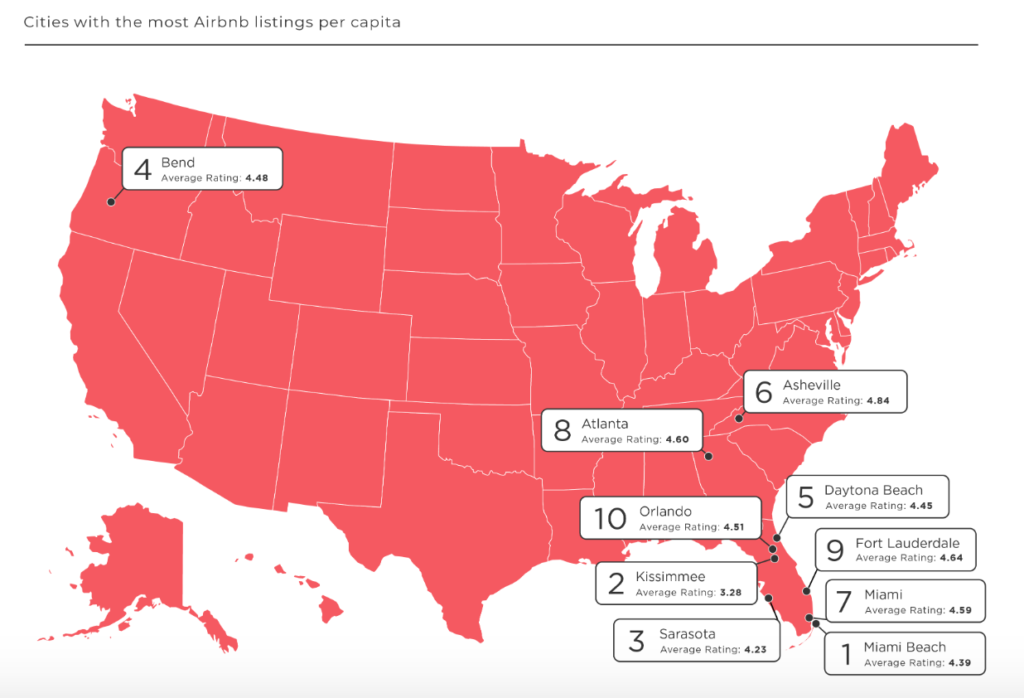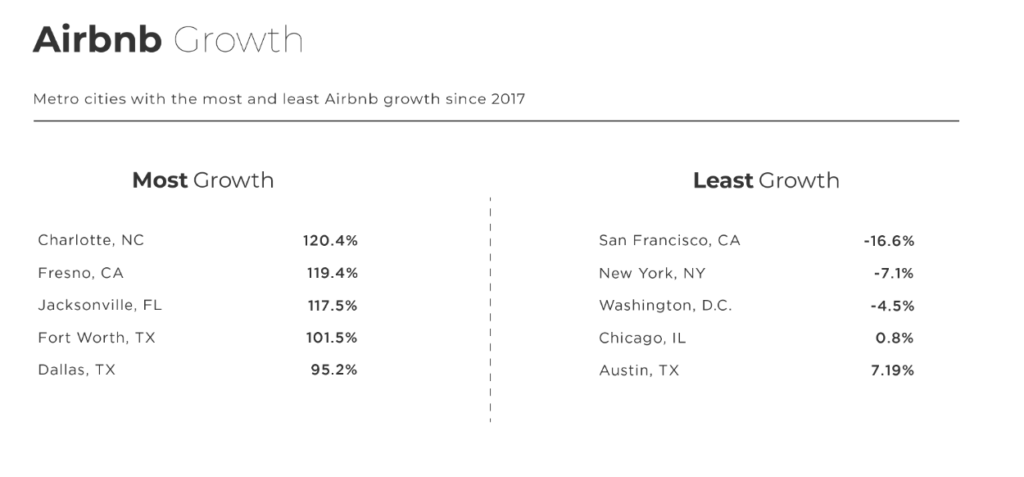If you’re trying to rent an Airbnb, look no further than Florida.
According to the latest report by Digital Third Coast, the state has seven out of the 10 cities with the most Airbnb listings in the country. Miami Beach, in particular, surpasses all others with 3,416 listings for every 50,000 people.
By looking at 350 cities and ranking the number of Airbnb listings per 50,000 people, Digital Third Coast found that Florida’s Miami Beach, Kissimmee and Sarasota had the greatest Airbnb-to-resident ratio in the country — 2,880 listings in Kissimmee and 2,234 listings in Sarasota, respectively. The beach, theme parks and warm weather that have traditionally attracted large numbers of tourists to the state also encourage local homeowners to turn vacant or unused properties into extra income.

Digital Third Coast
“Walt Disney World alone draws an average annual attendance of more than 52 million visitors, making it the most-visited vacation resort in the world,” reads the report, which cites Disney’s visitor statistics. “And all of those visitors need a place to stay while they’re taking in the sights and sounds of Mickey, Goofy and friends.”
Oregon’s Bend, Florida’s Daytona Beach and North Carolina’s Asheville followed closely with the number of Airbnb listings. Miami, Atlanta, Fort Lauderdale and Orlando rounded out the top 10.
 The emerging luxury consumer is different. Here’s what you need to know
What does the emerging luxury consumer value? How real estate agents can adapt to the unique needs of the new buyer READ MORE
The emerging luxury consumer is different. Here’s what you need to know
What does the emerging luxury consumer value? How real estate agents can adapt to the unique needs of the new buyer READ MORE

Digital Third Coast
But along with the high number of listings in vacation hotspots, some pockets of the country are seeing a rapid growth in the popularity of Airbnb rentals among their residents. Since 2017, North Carolina’s Charlotte saw the number of Airbnb listings in its city grow by more than 120 percent while Fresno, California and Jacksonville, Florida saw similarly high listing growth at 119.4 percent and 117.5 percent, respectively.
San Francisco and New York City, meanwhile, saw their number of Airbnb listings fall by a respective 16.6 percent and 7.1 percent – possibly caused by stricter short-term rental regulations recently introduced in both cities.
“Some of these cities have been dealing with tighter regulations and restrictions on Airbnbs, which may be the reason for these stagnant numbers,” reads the report.
Source: click here














